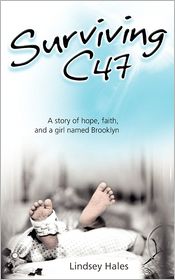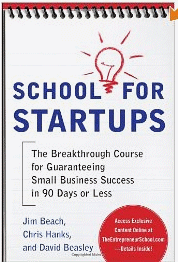There will always be a better strategy on the horizon, something that will really push you to finish the book you are writing, the business you will start, or the education you want to complete. There are also hundreds of programs that people follow to lose weight and get rid of bad habits. Do you really need a better system or a better diet, or is something else missing?
David Maister is a prominent business author who wrote one of the best business books available on the subject of strategy. The complete title is Strategy and the Fat Smoker: Doing What’s Obvious But Not Easy. The book is written to entrepreneurs and business owners, but I highly recommend it to anyone. Maister proposes a new definition of strategy, and it will change the way you think about the goals in your own life.
The book is written to entrepreneurs and business owners, but I highly recommend it to anyone. Maister proposes a new definition of strategy, and it will change the way you think about the goals in your own life.
Instead of focusing on a system or a new diet, you need to focus on something that works. The winner is not the person who has the best system, but the person who resolves to follow their strategy consistently and habitually for the rest of their life. The strategy you should look for is the one you can stick to, the one that will push you to run faster and more often than the other guys in the race. For authors and wannabe authors, there are some valuable principles that you can use to start writing now.
First of all, authors need to change the definition of their writing strategy. The real strategy that you should focus on is how to do more of what you know you should do. Stop trying to figure out what to do. Stop looking for the next writing program. Instead, just write. And try to do it more than the author next door.
Reward yourself for the small things. Break your writing down into very small goals and take baby steps. Break it down and make it your goal to simply write every day. In fact, just commit to writing ten minutes a day, every day this week. That doesn’t sound impossible, does it? Reward yourself when you complete this small but significant task. Celebrating the little victories along the way builds momentum and will propel you across the finish line.
Be honest with yourself. Create a writing plan and strategy that is doable, something that you can make a habit out of. Discipline and resolve are the main goals that you should aim for. If you are not meeting your small goals along the way, if you cannot commit to writing 10 minutes a day for just one week, then your resolve is not what it needs to be. It is perfectly fine to recognize that you are not an author, it is not fine to keep lying to yourself. If your beliefs and your commitments do not line up with your actions, change one of them. Don’t choose to hover in a confused state of an unexamined life.
Write down what lies behind your goals. What are the motivations for you to write this book? Why does it matter? How will your book change the world? The goal here is to look for emotional hooks and firm principles that are motivating you to complete this work. Once you realize your true reasons for writing, it will strengthen your resolve to do the work. After all, its not just about money; it is tied to the principles that guide your life.
You make the decision, no one else. The standard excuses of time and money will stand alongside other obligations you have. “Strategy . . . a choice that each individual has to make about whether he or she wants to put more effort into her life and career in order to get somewhere new” (Maister, Strategy and the Fat Smoker, 14).
Don’t expect perfection. As you push forward, focus on the little achievements and improvements that you make along the way. Resolve and determination are shown by continuing to move forward and making positive changes to reach your goals.
Of all the people who say that they will write a book, very few accomplish their goal. Most never make it past the first chapter. Recognize that you will face both internal and external resistance, and push forward by applying some simple principles. As Maister says, strategy is the diet, not the goal. What needs to be done should be very obvious to you. It won’t be easy, but now is the time to actually do it.
Does this definition of strategy change how you will work?
Will you commit to writing and reach the small goals?
What does it look like for you to pursue your goals today?
What rewards will you get when you reach your goal?
What happens if you don’t reach your goal?
What are you waiting for before making this happen?
Do your beliefs, values, and goals line up with your actions? If not, what will you change?
Another great book on overcoming resistance is The War of Art. It is written specifically for authors, so there is a lot to learn from it. Buy it once you have started moving towards your goal and it will encourage you along the way.
It is written specifically for authors, so there is a lot to learn from it. Buy it once you have started moving towards your goal and it will encourage you along the way.














